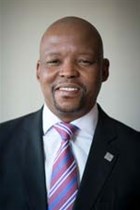South Africa's power sector is undergoing radical transformation with positive medium- to long-term strategies in place.
The country's policy environment is adopting global best practices for a diversified power generation mix. Still, opportunities exist for innovative leadership and greater regional coordination to help maintain South Africa's status as the region's powerhouse.
Fundamental transformation is taking place in the global energy landscape driven by factors such as evolving fuel market dynamics, climate change considerations, development and sustainability goals, and the rise of renewables.
This places onus on governments to optimise the management of available energy resources to promote growth and prosperity. A challenge South Africa, by all policy indications, is taking very seriously.
Primary energy source
For decades the primary energy source in South Africa has been fossil-based coal, largely influenced by the availability of abundant domestic coal reserves. Limited availability of traditional natural gas supplies and a reliance on higher-cost imported oil also skewed the economics of generating assets towards coal. Nuclear energy has played a minor but important role, and more recently, renewables and waste resources have begun contributing to the grid.
However, South Africa's current ability to generate power is constrained, resulting in periods of load shedding when demand regularly outstrips supply, as was experienced over the past winter. Ageing generation assets also create reliability and maintenance challenges, while the parallel success of a nationwide electrification programme has increased the overall demand for power.
The immediate challenges facing South Africa's power sector have brought about calls by the Department of Energy for a significant transformation in the overall generation portfolio. In the medium term, things look positive as the power supply is increasingly stabilised by contributions from the Medupi and Kusile power stations.
There is also a renewed focus on generation asset maintenance, operational efficiency, and a world-class renewable energy programme.
New IPPs
Steps are under way to allow new independent power producers (IPPs) to contribute up to 17GW by 2022. In addition to overall capacity increases, South Africa aims to reduce the role of coal in the power generation mix from 84% to 48%.
This depicts a fundamental shift in the policy defining the generation capacity mix, the report maintains. A long-term vision of reducing the country's carbon footprint is reflected in South Africa's emphasis on including imported power, particularly hydro, into the future generation mix, a clear departure from the region's historic power flows.
Yet, the increase of natural gas and hydro resources is heavily reliant on countries such as Mozambique and the Democratic Republic of Congo, respectively, to complete development projects. Similarly, the construction costs of nuclear assets are relatively expensive compared to coal.
These factors imply that electricity generated by nuclear power plants will result in higher prices for end users in the near, but not necessarily, long term. It also reflects the ongoing challenges developing nations encounter when balancing an emphasis on greenhouse gas emission reduction against available energy resources within a country.
Renewable energy
On the renewables front, the Renewable Energy Independent Power Producer Programme (REIPPP) has brought about liberalisation of the power sector mainly driven by the private sector and an enabling policy environment.
However, coal still remains an important factor in the South African power generation mix and opportunities exist to investment in technologies to produce energy from coal and coal equipment in a cleaner manner.
Use of technologies to reduce emissions from coal such as carbon capture and flue gas desulphurisation equipment should also be considered as part of the long term strategy. Although there are challenges, South Africa provides many opportunities for astute investors in the power sector.
Critical among the surmountable risks is a need for power sector investments to be coordinated with industrial investments and other infrastructure development programmes. This ensures capacity additions will service actual buyers, and that investments are not stranded by poor demand.






































